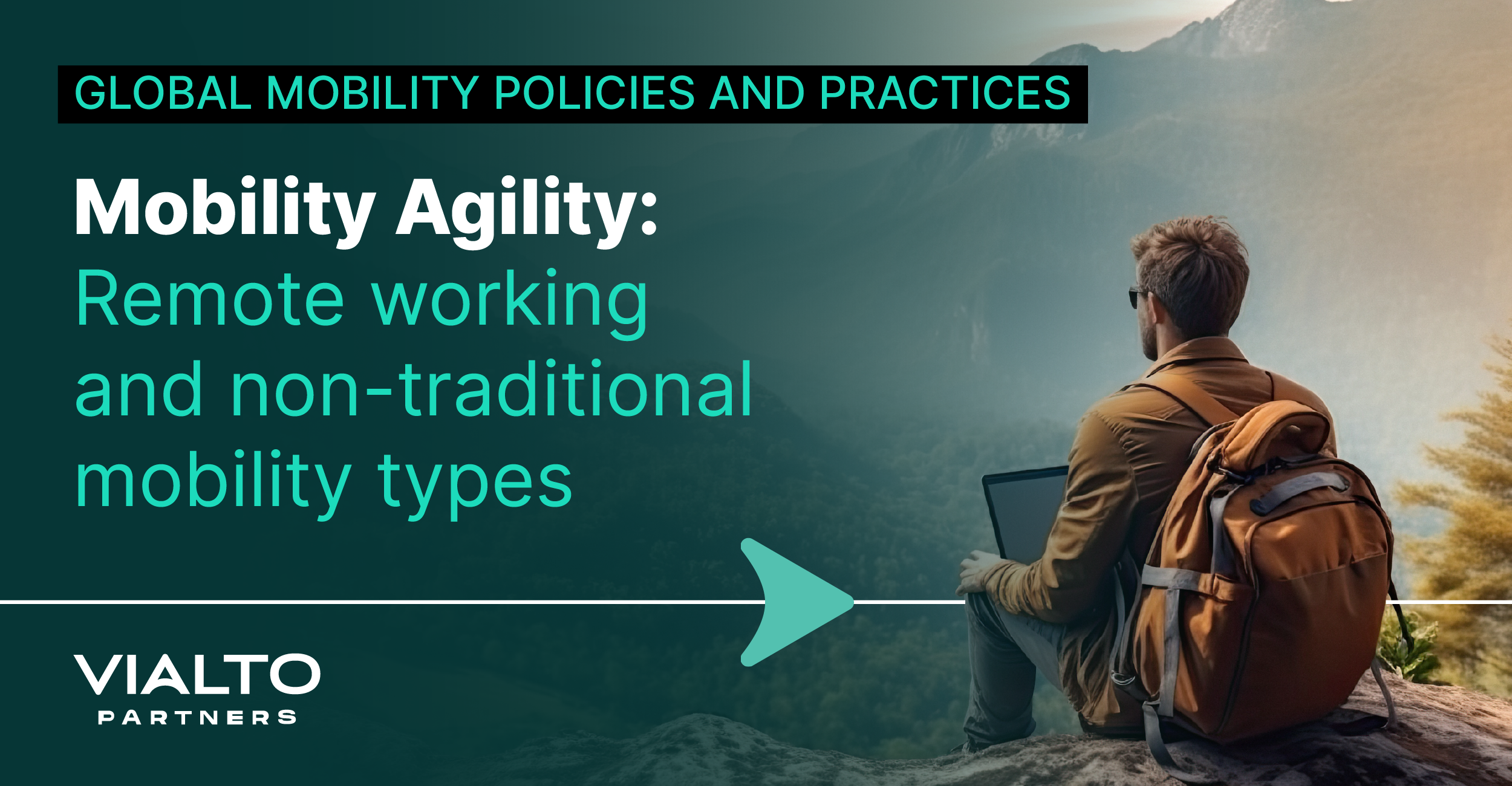Vialto's Mobility Agility survey - the results are in!

The landscape of Global Mobility is continuously evolving, setting new standards for how we work. We are thrilled to announce the results of our Mobility Agility: Remote working and non-traditional mobility survey revealing how companies are adapting their policies and guardrails in response to the need for a more agile approach to mobility. The survey saw responses from over 450 participants across 45 countries, representing a diverse range of industries and organizational sizes.
The survey delves into the emerging types of global mobility, identifying changes over the last year. The post-COVID era has given rise to dynamic work structures, paving the way for a more flexible workforce. Explore the shifts in demand from traditional mobility to newer forms of mobility that have gained prominence, such as hybrid work models, virtual assignments, cross-border commuting, and international short-term remote working arrangements. This expansion of mobility underscores the importance of Global Mobility teams as best placed to manage this more agile but complex workforce—mobile in ways not previously anticipated.
This comprehensive analysis provides the latest benchmarking, current trends, and outlook for the future—enabling organizations to make informed, data-driven decisions about their non-traditional mobility strategy.
Key highlights:
- There is a marked uptick in short-term international remote work and virtual assignments.
- Global Mobility teams have positioned themselves as the most adept at addressing the complexities arising from an agile workforce.
- Organizations are increasingly enabling flexible and emerging mobility types in order to resource global projects, manage mobility costs, and ensure positive employee experience.
- Virtual assignments (VA) are increasingly becoming the norm, with 64% of participants anticipating an increase in VA.
- An increasing number of organizations are tightening up on the governance and tracking of their mobile populations, to ensure effective risk management, including new focus areas such as duty of care and cyber security.
- Mobility continues to expand with variation on packages available within organizations to fit every mobility type. Most organizations use a global approach to policy design for consistency and simplification.
- Employer-led push to have employees return to the office has been tempered by the implementation of temporary international remote work policies and programs.
- More employers are offering short-term international remote work to enhance employee experience, but with tighter governance.
- There is a shift away from employee-driven hybrid work, with greater control assumed by employers in defining hybrid work patterns and which days are required in the office, setting up increased governance, and taking action where the policy is not followed (e.g. disciplinary action, impact on performance reviews etc.) This may be of particular interest to Heads of HR.
View the survey results here:
https://vialtopartners.com/insights/mobility-agility-remote-working-and-non-traditional-mobility
Please sign in or register for FREE
Sign in OR sign up to become a registered The Forum for Expatriate Management website user
Subscribe here